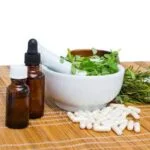Aromatherapy, often referred to as essential oil therapy, is a holistic healing treatment that uses natural plant extracts to promote health and well-being. In this article, we will explore the basics of aromatherapy, its benefits, essential oils 101, techniques for incorporating it into your daily routine, and its effectiveness for stress relief, improved sleep quality, pain management, and support for emotional well-being. Additionally, we will provide safety tips for using essential oils effectively.
The Basics: Aromatherapy involves inhaling the aroma of essential oils or absorbing them through the skin to stimulate brain function. Essential oils can also be used in massage or added to lotions and bath salts. The practice of using aromatic plant extracts dates back thousands of years across various cultures, each with their unique approaches to the practice. Today, aromatherapy is widely used as an alternative medicine in conjunction with other treatments.
Stay tuned as we delve into how aromatherapy can improve your health and well-being by exploring its benefits and uncovering the key facts you need to know before starting your journey with essential oils. Whether you’re looking to alleviate stress, sleep better, manage pain naturally or support overall emotional wellness – aromatherapy may just be what you need.
We’ll guide you through each step so that you can incorporate these powerful natural remedies into your life safely and effectively.
Benefits of Aromatherapy
Aromatherapy is a popular holistic healing treatment that uses natural plant extracts to promote health and wellbeing. By incorporating essential oils into your daily routine, you can experience a wide range of benefits that can improve your physical and mental health. Here are some of the key benefits of aromatherapy:
- Stress relief: Aromatherapy has been shown to help reduce stress and anxiety, promoting a sense of calmness and relaxation.
- Improved sleep quality: Certain essential oils such as lavender and chamomile can help promote better sleep by relaxing the mind and body.
- Pain management: Some essential oils like peppermint and eucalyptus have analgesic properties that can provide relief from common aches and pains.
In addition to these specific benefits, aromatherapy can also have a positive impact on your overall mental and emotional wellbeing. The use of essential oils can help uplift mood, improve cognitive function, and even support emotional balance.
Whether you are looking to manage stress, improve sleep quality, or alleviate pain, aromatherapy offers natural remedies that can complement your wellness routine. By learning more about the different essential oils and how to use them effectively, you can discover the many ways in which aromatherapy can enhance your health and wellbeing.
Essential Oils 101
Before diving into the world of aromatherapy, it’s essential to learn the basics of essential oils. These oils are highly concentrated plant extracts that can be used for a variety of purposes, including aromatherapy, skincare, and natural cleaning products. It’s important to understand that not all essential oils are created equal. Some may have specific properties for targeting certain issues, while others are more versatile.
When starting your journey with essential oils, it’s crucial to do your research and seek out high-quality products. Look for oils that are labeled as “pure” or “100% therapeutic grade.” This ensures that they have not been diluted or contain any artificial ingredients. Additionally, it’s important to be aware of any potential allergies or skin sensitivities you may have before using essential oils topically.
Learning about the different properties of essential oils is also vital before incorporating them into your routine. Some common essential oils and their benefits include:
- Lavender: Known for its calming and soothing properties
- Peppermint: Used for its invigorating and uplifting effects
- Tea Tree: Often used for its antimicrobial and anti-inflammatory properties
In addition to understanding the individual properties of essential oils, it’s important to learn about proper dilution and application methods. Essential oils should never be applied directly to the skin without being diluted with a carrier oil, such as coconut or jojoba oil. The typical recommended dilution ratio is 2-3 drops of essential oil per teaspoon of carrier oil.
| Common Essential Oil | Benefits |
|---|---|
| Lavender | Calming and soothing properties |
| Peppermint | Invigorating and uplifting effects |
| Tea Tree | Antimicrobial and anti-inflammatory properties |
Aromatherapy Techniques
When it comes to incorporating aromatherapy into your daily routine, there are several techniques that you can use to experience the benefits of essential oils. Whether you want to create a relaxing atmosphere at home or boost your mood throughout the day, aromatherapy can be easily integrated into your lifestyle. Here are some simple and effective techniques for incorporating aromatherapy into your daily routine:
- Diffusing Essential Oils: A popular way to enjoy the benefits of aromatherapy is by using an essential oil diffuser. Simply add a few drops of your favorite essential oil or a blend of oils to the diffuser, and let it fill your space with aromatic goodness. Whether you’re looking to promote relaxation, improve focus, or create a refreshing environment, diffusing essential oils is an easy and effective method.
- Aromatic Bath: Adding a few drops of essential oil to your bathwater can turn your regular bath time into a luxurious spa-like experience. Whether you’re in need of relaxation or invigoration, selecting the right essential oil can enhance your bathing experience and provide therapeutic benefits.
- Topical Application: Applying diluted essential oils directly to the skin is another way to incorporate aromatherapy into your daily routine. From creating custom massage oils to crafting soothing lotions and creams, topical application allows for targeted use of essential oils for various purposes.
As you learn more about aromatherapy and its techniques, you’ll be able to explore different methods that suit your preferences and needs. By incorporating these techniques into your daily routine, you can enjoy the holistic benefits that aromatherapy has to offer.
Aromatherapy for Stress Relief
Stress is a common problem that many people face in today’s fast-paced world. Aromatherapy can be a powerful tool in managing and reducing stress levels, helping individuals to relax and find relief from the pressures of daily life.
How Aromatherapy Works for Stress Relief
Aromatherapy works by using the natural scents of essential oils to promote relaxation and reduce stress. When inhaled, certain essential oils have been shown to have a calming effect on the mind and body. These oils can also be absorbed through the skin during massage, providing an additional way for the body to benefit from their stress-relieving properties.
Popular Essential Oils for Stress Relief
There are several essential oils commonly used in aromatherapy for stress relief. Lavender, chamomile, and bergamot are just a few examples of essential oils known for their relaxing properties. Each oil has its own unique scent and therapeutic benefits, so it’s important to experiment with different options to find which one works best for you.
Incorporating Aromatherapy Into Your Stress Relief Routine
There are many ways to incorporate aromatherapy into your daily routine as part of your stress management plan. Diffusing essential oils at home or work, adding a few drops to a relaxing bath, or using them during meditation or yoga can all be effective methods for reaping the benefits of aromatherapy for stress relief. Learning how to use these methods effectively is essential when embarking on your journey to learn more about aromatherapy for stress relief.
Aromatherapy for Better Sleep
Aromatherapy has been used for centuries to promote relaxation and improve sleep quality. It involves the use of essential oils extracted from plants to enhance physical and mental well-being. If you want to learn more about how aromatherapy can help improve your sleep, here are some tips on using essential oils effectively.
Essential oils such as lavender, chamomile, and sandalwood are known for their calming and sedative properties, making them great choices for promoting better sleep. These essential oils can be diffused in your bedroom using a diffuser or mixed with a carrier oil and applied to pulse points before bedtime. Aromatherapy can also be incorporated into your bedtime routine by adding a few drops of essential oil to a warm bath or using an aromatherapy pillow spray.
Research has shown that inhaling certain essential oils can have a positive impact on sleep quality by reducing stress and promoting relaxation. In fact, one study found that older adults who inhaled lavender oil before bed experienced improved sleep quality compared to those who did not. By incorporating aromatherapy into your nighttime routine, you may find that you are able to fall asleep faster and enjoy a deeper, more restful slumber.
Lastly, it is important to consider safety when using essential oils for aromatherapy purposes. Some essential oils may cause skin irritation or allergic reactions in some individuals, so it is important to dilute them properly and perform a patch test before use.
Additionally, pregnant women and individuals with certain medical conditions should consult with a healthcare professional before using aromatherapy. By learning how to use essential oils safely and effectively, you can reap the benefits of aromatherapy for better sleep without any unwanted side effects.
| Aromatherapy Tip | Benefits |
|---|---|
| Use lavender essential oil | Promotes relaxation and improves sleep quality |
| Inhale essential oils before bed | Reduces stress and helps you fall asleep faster |
| Dilute essential oils properly | Prevents skin irritation or allergic reactions |
Aromatherapy for Pain Management
Understanding Aromatherapy for Pain Relief
Aromatherapy has been used for centuries as a natural remedy for various ailments, including pain relief. The use of essential oils in aromatherapy can help alleviate common aches and pains, such as headaches, muscle soreness, and joint pain. When inhaled or applied topically, certain essential oils can have analgesic and anti-inflammatory properties that target the source of discomfort.
Essential Oils for Pain Relief
There are several essential oils that are known for their pain-relieving properties. Peppermint oil, for example, has a cooling effect that can soothe muscle tension and alleviate headaches. Eucalyptus oil is often used to relieve respiratory discomfort and soothe sore muscles. Lavender oil is renowned for its calming effects and is commonly used to reduce stress-related tension and promote relaxation.
Incorporating Aromatherapy Into Your Pain Management Routine
Incorporating aromatherapy into your pain management routine can be as simple as diffusing essential oils in your home or workplace, adding a few drops of oil to a warm bath, or applying diluted oils to the affected area. It’s important to note that while aromatherapy can be an effective natural remedy for managing pain, it is not a substitute for professional medical treatment.
Always consult with a healthcare provider before using aromatherapy for pain relief, especially if you have any underlying health conditions or if you are pregnant or breastfeeding. Learning about the proper usage of essential oils will ensure their safe and effective application.
Aromatherapy and Mental Health
Aromatherapy, when used correctly, can have a positive impact on mental health and emotional wellbeing. The use of essential oils has been shown to help reduce feelings of stress and anxiety, promote relaxation, and improve overall mood. The use of aromatherapy for mental health support is becoming increasingly popular as people look for natural remedies to support their emotional wellbeing.
One of the main benefits of using aromatherapy for mental health is its ability to promote relaxation and reduce stress. Certain essential oils, such as lavender, chamomile, and bergamot, have calming properties that can help ease feelings of anxiety and promote a sense of calm. Additionally, inhaling these essential oils through methods such as diffusing or inhalation can stimulate the olfactory system, which is connected to the part of the brain that regulates emotions.
Incorporating aromatherapy into your daily routine can be an effective way to support emotional wellbeing. Whether it’s through the use of an essential oil diffuser in your home or office, adding a few drops of essential oils to a warm bath, or using a personal inhaler throughout the day, there are many different methods for incorporating aromatherapy into your daily life.
Learning how to use aromatherapy effectively for emotional support can provide a natural and non-invasive way to improve mental health and overall wellbeing.
Aromatherapy Safety
In conclusion, learning about aromatherapy can be a rewarding journey towards improving your overall health and wellbeing. Understanding the basics of aromatherapy is the first step in realizing the benefits it can bring to your life. From stress relief to better sleep and pain management, aromatherapy offers a natural and holistic approach to improving various aspects of your physical and emotional health.
As you delve into the world of aromatherapy, it’s important to familiarize yourself with essential oils and their properties. Before incorporating aromatherapy into your daily routine, take the time to learn about different essential oils and how they can be used safely and effectively. This will not only maximize the benefits you receive from aromatherapy but also ensure that you are using these powerful tools in a responsible manner.
In addition, understanding aromatherapy safety is crucial in avoiding any adverse reactions or harmful effects from essential oils. By following tips for using essential oils safely and effectively, you can enjoy the full potential of aromatherapy while minimizing any potential risks.
Whether you’re using aromatherapy for stress relief, better sleep, pain management, or emotional support, prioritizing safety will allow you to fully experience the positive impact of aromatherapy on your life. So take the time to learn about aromatherapy and discover how it can enhance your overall wellbeing.
Frequently Asked Questions
How Can I Learn About Aromatherapy?
You can learn about aromatherapy by taking courses or workshops offered by certified aromatherapists or reputable institutions. There are also many books and online resources available that provide comprehensive information on essential oils and their therapeutic uses.
How Do I Become an Aromatherapist?
To become an aromatherapist, you typically need to complete a comprehensive aromatherapy training program from a recognized institution. This usually involves studying the properties of essential oils, their uses in holistic health practices, and understanding the science behind aromatherapy.
After completing the necessary training, you may also choose to pursue certification from a professional organization to further establish your credentials as an aromatherapist.
Where Can I Learn Aromatherapy?
Aromatherapy can be learned through various channels such as specialized schools or institutions that offer accredited training programs in aromatherapy. Many holistic health centers and wellness retreats also offer workshops and courses on aromatherapy for those interested in learning about its practice.
Additionally, there are numerous online platforms where you can find reputable sources for learning about aromatherapy from the comfort of your own home.

Are you looking for a natural way to improve your health and wellbeing?
If so, aromatherapy may be the answer for you.



